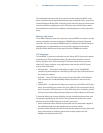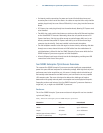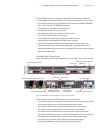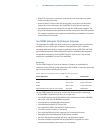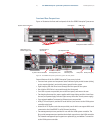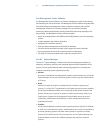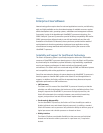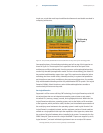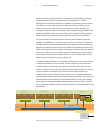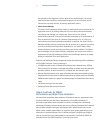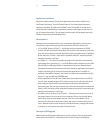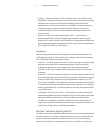28
E
n
t
erpr
i
se-
Cl
ass
S
o
ft
ware Sun Microsystems, Inc.
Chapter 4
Enterprise-Class Software
New technology often requires time for tools and applications to arrive, and delivering
agile and highly-available services that take advantage of available resources requires
stable development tools, operating systems, middleware and management software.
Fortunately, in spite of the breakthrough UltraSPARC T2 processor technology, Sun
SPARC Enterprise T5120 and T5220 servers provide full binary compatibility with earlier
SPARC systems and are delivered ready to run with pre-loaded tools and the solid
foundation of the Solaris OS. Moreover, these systems are provided with a wealth of
sophisticated tools that let organizations develop and tune applications as they
consolidate and manage workloads while effectively utilizing the resources of the
UltraSPARC T2 processor.
Scalability and Support for CoolThreads Technology
The Solaris 10 Operating System is specifically designed to deliver the considerable
resources of UltraSPARC T2 processor based systems. In fact, the Solaris 10 OS provides
key functionality for virtualization, optimal utilization, high availability, unparalleled
security, and extreme performance for both vertically and horizontally scaled
environments. The Solaris 10 OS runs on a broad range of SPARC and x86-based systems
and compatibility with existing applications is guaranteed.
One of the most attractive features of systems based on the UltraSPARC T2 processor is
that they appear as a familiar SMP system to the Solaris OS and the applications it
supports. In addition, the Solaris 10 OS has incorporated many features to improve
application performance on CMT architectures:
• CMT Awareness
The Solaris 10 OS is aware of the UltraSPARC T2 processor hierarchy so that the
scheduler can effectively balance the load across all the available pipelines. Even
though it exposes the UltraSPARC T2 processor as 64 logical processors, the
Solaris OS understands the correlation between cores and the threads they
support, and provides a fast and efficient thread implementation.
• Fine-Granularity Manageability
For the UltraSPARC T2 processor, the Solaris 10 OS has the ability to enable or
disable individual cores and threads (logical processors). In addition, standard
Solaris OS features such as processor sets provide the ability to define a group of
logical processors and schedule processes or threads on them.
• Binding Interfaces
The Solaris OS allows considerable flexibility in that processes and individual
threads can be bound to either a processor or a processor set, if required or
desired.



